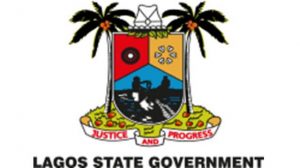Drivers, Uber speak on ‘unclear’ new regulations on ride-hailing services in Lagos

The ride-hailing operators in Lagos State have received the new regulations from the State government with mixed feelings.
The regulations which will come into effect on August 20, the government said were necessary to reduce security risks, improve safety and curb flagrant flouting of existing traffic laws.
The government said in the guidelines that “The flagrant disobedience to road traffic rules and regulations by the drivers is unacceptable and all necessary steps must be taken to bring safety, sanity, standard and security back to the operation of the Business.
“There is need to introduce accreditation scheme/registration that will have all the necessary and significant data of operators, drivers and the number of registered Taxi details of which will include the route and tag numbers. This exercise will go a long way to curb the excesses of the operators and drivers in the State.”
Ayoade Ibrahim, the president of the National Union of Professional App-Based Workers, said in an interview on Tuesday that the regulations do not take cognisance of the operational challenges the drivers face.
“The major problem we have with the new regulations is the 10 per cent the government said they will charge on the commission we pay to the e-hailing companies.That clause is not clear to us,” Ibrahim said.
The section of the guidelines that mentions the deduction of 10 per cent on each transaction carried out on e-hailing platforms does not state in clear terms if the deduction will be made on the commissions paid by drivers to operators such as Bolt and Uber.
Section 4.1 (v) of the new guidelines says: “All operators of e-Hailing Taxi Services must pay the State Government 10% Service tax on each transaction paid by the passengers to the operators.”
Ibrahim opined that operators will hike the percentage of the commission charged on each trip if the government taxes the commission paid by the drivers to the ride-hailing companies.
According to him, apart from having to pay a ₦25 million licence fee and ₦10 million annually for the renewal of such licence, a provision like the service tax deduction is problematic for operators.
However, the spokesperson for the Ministry of Transportation, Bolanle Ogunlola could not be reached for comment about the guidelines.
